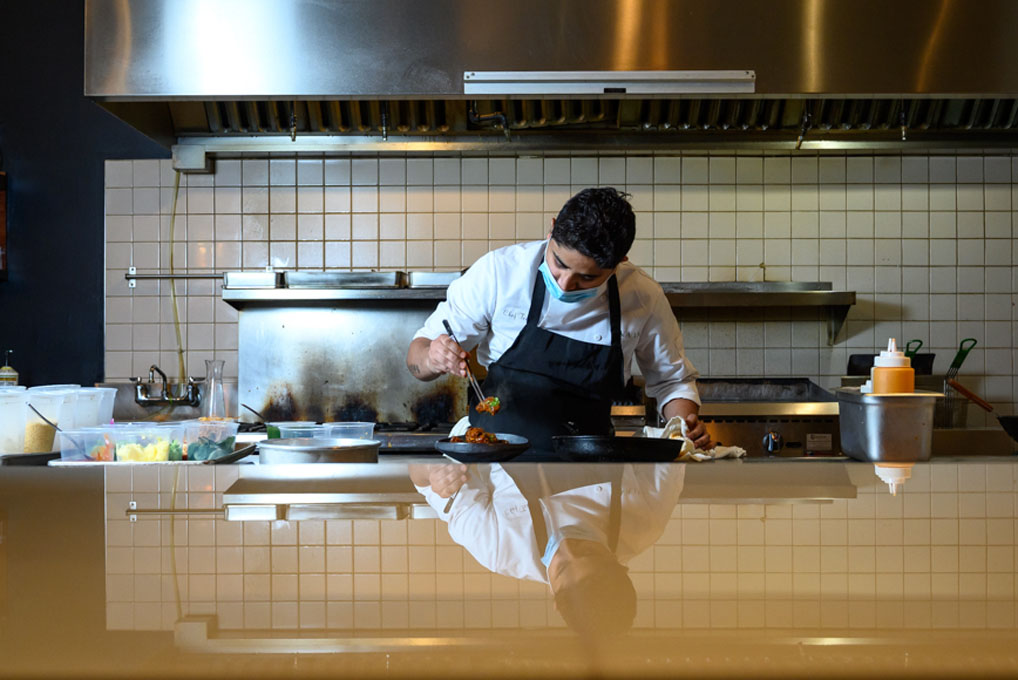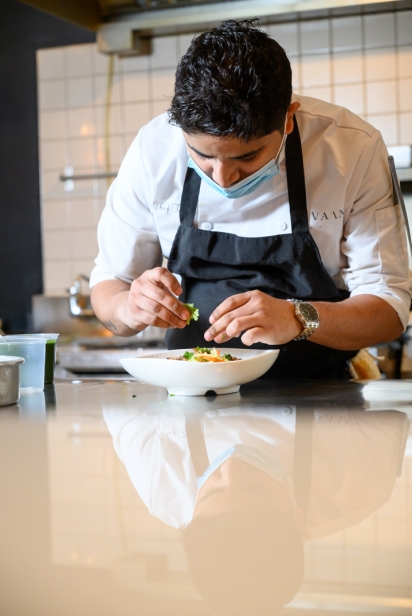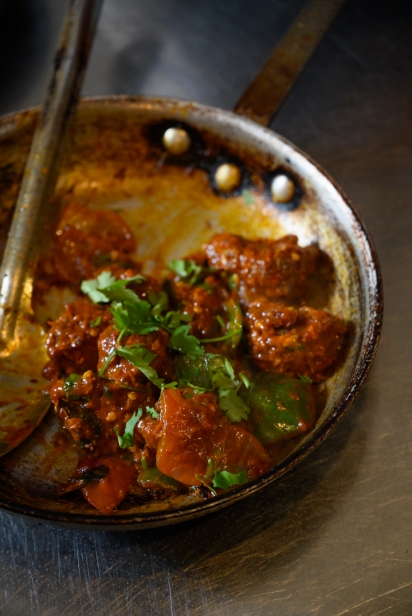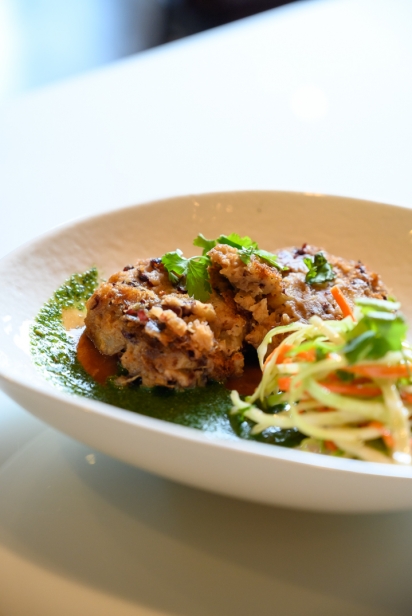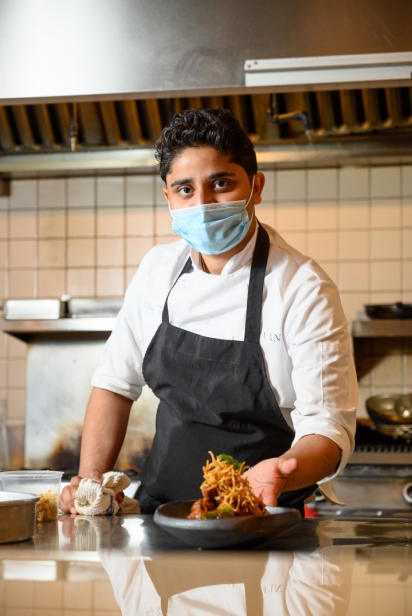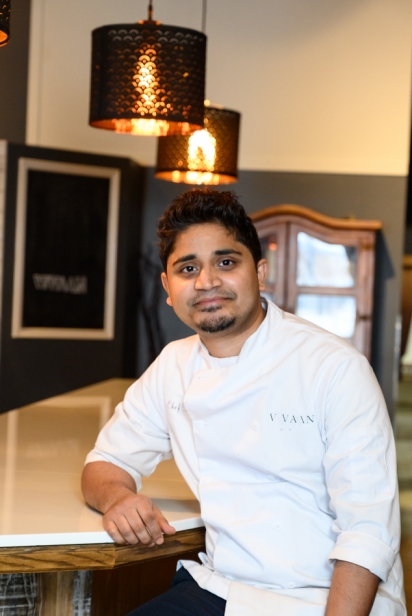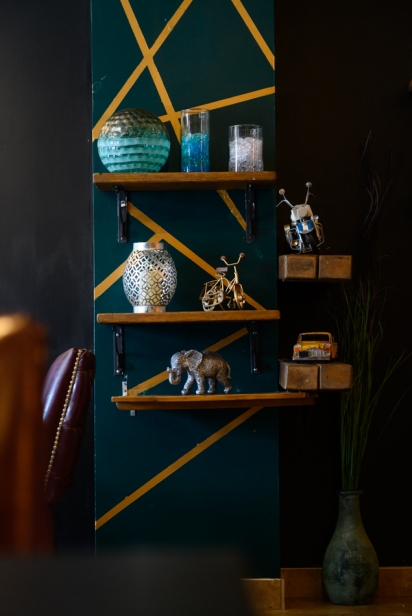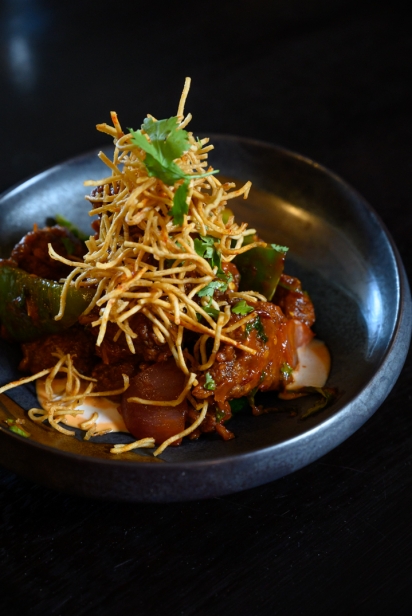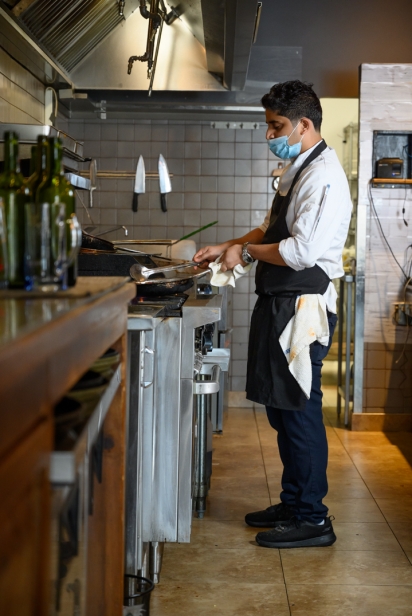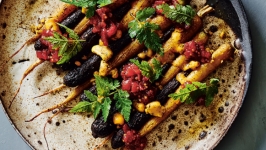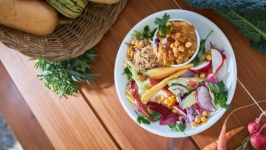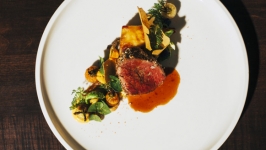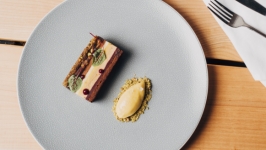"I Didn't Want to Sit at a Desk"
Sarath Teegavarapu has an undergraduate degree in computer science and a master’s in the same subject. But the computer in his place of work isn’t used for programming. If it’s lucky, that computer might be used to change the menus on a website or do a Zoom interview with a writer.
Teegavarapu, after all, is a self-taught chef, having learned most of his trade by studying YouTube videos over the course of a year after completing his studies at Carleton University. He emigrated to Ottawa from Hyderabad, in the south of India, to study in 2013.
“We have this thing back home that you have to go abroad to study,” Teegavarapu says. “Everybody does it. That’s why I was [in Ottawa].”
But in 2015, as he was completing his master’s, he decided computer science was not what he wanted to do.
“I didn’t want to sit at a desk,” he recalls, something that became all too clear when he took a job with a tech company after graduating. That lasted three months. “I didn’t know what I wanted to do, but during my master’s, a lot of my part-time jobs were in cooking.”
In 2014, he worked at Rasam, a now-closed Indian restaurant on Clarence Street in the ByWard Market run by the chef who now owns Last Train to Delhi in the Glebe. He realized he really liked to cook and wondered if he could do it for a living. He started catering for some friends and spent hours on YouTube, watching videos and teaching himself techniques in Indian cookery.
That same year, he went to work at a Kanata restaurant called Flavours of Kerala and that’s when he knew for sure that cooking was what he wanted to do for a career.
“I was a part of menu-making decisions and I always made sure we had different dishes,” Teegavarapu says. “That was the main intention of why I wanted to start my own business. I worked for a year at Flavours of Kerala while learning about the permits needed [to open a restaurant.]"
The dish
Asked to pick one dish on his menu that represents him on a plate, Teegavarapu picks a kebab from his appetizer menu. He makes the patty-shaped kebab from yucca and kidney beans, garam marsala, rose water and fried onions, so it’s completely vegetarian, which speaks to Teegavarapu’s heritage. Known as the Veg Galouti Kebab, it is predominately a restaurant dish in South India, but some of the other appetizers on the menu are street food, something Teegavarapu has always wanted to bring indoors and into the fine dining sphere.
“Traditionally, [these kebabs] should be made with lamb or goat, which has that extra [appeal] of almost melting in your mouth when you make it right," Teegavarapu says. "We’re hoping for the same effect here.”
When it comes to street food, the menu offers its own section, with dishes such as Chicken Frankie, a parotta bread filled with chicken or veggies, onions, cilantro and cheese. It’s a dish that is always found on the street, and never in restaurants in Hyderabad. Other street food items include dosa with chutney, Bombay sliders and puris, which are semolina shells filled with yogurt, pomegranate and chutneys or spiced potatoes, cilantro and mint water.
The mission, Teegavarapu says, is to be different from other Indian restaurants in Ottawa.
“We always wanted to be really different,” he says. “I’ve been here since 2013 and I’ve never seen Indian restaurants like this.”
He and his partner, Vishnu Vardhan, went into business in February 2019 with NH44, which was dedicated to Indian street food and situated in Elmvale Acres, an east-end neighbourhood not far from the Canadian Science and Technology Museum.
“We were doing food from the north, south, east and west of India,” he says. “And we were doing proper street food.”
The Elmvale neighbourhood embraced the little restaurant, and some diners even came from other parts of town, but it wasn’t enough to keep the place going once COVID-19 hit. The two shut its doors, but soon found an opportunity to start anew on Preston Street in Little Italy, a street whose restaurants have, in recent years, stretched well beyond Italy’s borders.
“We want to stay in the business, so this was a strategic move,” Teegavarapu says of the space vacated by DiVino Wine Studio. “When I saw the space, I knew we could do elevated Indian cuisine that no one was doing in Ottawa.”
They also knew it would be a challenge, opening as they were in a pandemic. They had soft openings at the end of September and officially opened the doors Oct. 2, 2020. An indoor dining ban came mere days later.
A month later, they re-opened and had good numbers until another lockdown came on Dec. 26.
Teegavarapu is the hands-on partner as Vardhan, who also has a mechanical engineering degree, has a fulltime job at a Sanmina, a production company in Kanata. When they’re open, Vardhan moonlights couple of evenings a week and on the weekends, running the front of house.
Full of life
Vivaan means “full of life” and that’s why they chose the name for their new place. The word also speaks to the spice levels. Teegavarapu says Indian food should be spicy and he wonders if some Canadian Indian food has just become bland in trying to appeal to Western tastes. He’s trying to strike a balance — spicy doesn’t have to mean hot, Indian spices such as turmeric, cumin, cardamom, cinnamon, along with ginger and garlic can also impart complex flavours.
“The spice level is, I think, how it should be,” he says.
Hyderabad, Teegavarapu says, is in one of India’s most revered dining regions. Its cuisine has Persian influences because several of its 15th- and 16th-century rulers were Persian, so dishes such as biryani, kebabs and goat-infused options are always available. There are also influences from Northern India and China, he says. India has a sizable border with China, and just Pakistan separates it from Afghanistan while Myanmar is an eastern neighbour.
One of the Northern Indian dishes on Vivaan’s menu is Chilli Chicken, which Teegavarapu says is an Indo-Chinese, or Hakka, dish. He says Hakka cuisine appeared when neighbouring Chinese chefs started incorporating India’s ground spices into their dishes. The Chilli Chicken appears on the appetizer section of the menu. The chef marinates the chicken in yogurt and ground spices and then dredges it in flour before frying it. It’s then tossed in a spicy red sambal.
Getting to open a restaurant on Preston Street is “like a dream come true,” Teegavarapu says. “There’s a lot of chefs who do amazing work on Preston.”
Family roots and traditions
Teegavarapu doesn’t have heart-warming memories of learning to cook by a family member’s side.
“I don’t have those cheffy stories,” he says, and adds that he thinks his parents, who are “pretty educated,” weren’t big fans of their son putting his master’s degree aside to work in a kitchen. “I think they hated it in the beginning.”
But they’ve come around and are now proud of him, he says, and they’ve often visited him and his restaurants in Ottawa. They’ve also endorsed his new life economically by signing on as investors.
There is, however, one salient food-related point about his upbringing: Teegavarapu grew up in an entirely vegetarian family.
“I had never cut meat until I came to Canada,” he says with a laugh. “I had never butchered meat. But look at me now; I butcher all kinds of different meats. [At Vivaan], we do lamb and goat. When I was working at Flavours of Kerala, we also brought in kangaroo and elk.”
With respect to where his own culinary inspiration comes from, the chef says he has “faint memories” of eating dishes in restaurants back in India and then he tries to replicate those flavours. Once he nails them down, he considers what kinds of additional flavours he’d like to impart or how he’d like to “modernize” the dish.
He’s a fan of contemporary cuisine and hopes to pursue collaborations with local chefs who are cooking on the cutting edge. He named Stofa, as well as Atelier and Aiāna.
“I’m looking at [Raghav Chaudhary’s] work very closely,” he says. “I would love to work under chefs like Marc Lepine. I have sous-chefs who have worked under him. I have students from Le Cordon Bleu who work with me and I learn from them, too. I ask them about techniques. They always help me with whatever they can.”
Asked for his thoughts on Canadian cuisine, he says he doesn’t eat it much, but poutine is a guilty pleasure. And he plans to learn more about Northern cuisine.
“My girlfriend is from Nunavut,” he says. “I always ask what they eat and what is their cuisine.”
He’d also like to return to India for more culinary exploration as he hasn’t been back in six years. “I would want to go back home and learn and travel across India,” he says.
For now, he’ll be working at keeping his new restaurant going while the world battles an ongoing pandemic.
Vivaan
225 Preston St., Ottawa, Ont.
vivaanottawa.com | 613.265.6444 | @vivaanottawa


